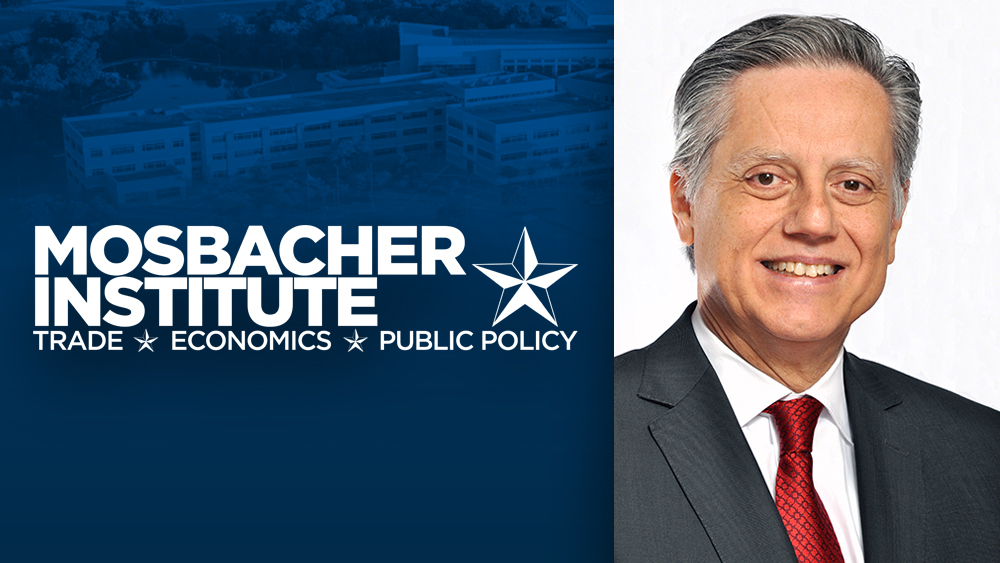
The Mosbacher Institute for Trade, Economics, and Public Policy hosted its first Conversation in Public Policy of the academic year on Thursday, September 15, 2016. The event featured Dr. Manuel Sánchez González, Deputy Governor of the Banco de Mexico speaking on the topic of the “Changing Structure of the Mexican Economy: Mexico as a Regional Leader.” The evening began with welcoming remarks from Dr. Lori Taylor, Director of the Mosbacher Institute, noting Dr. Sanchez’s extensive track record in Mexican financial institutions and education at the University of Chicago where he received his masters and doctorate in economics. After Dr. Taylor’s welcoming notes, Dr. Sánchez took the stage to deliver remarks over the changing culture of the Mexican Economy.
Dr. Sánchez began his comments pointing out the complex relationship that the United States and Mexico have, highlighting the positive and negative effects certain American policy decisions have on the monetary and economic affairs of Mexico. He noted that the special relationship enjoyed by the United States lends to the sharing of ideas and technology to the betterment of both countries, but in some cases this relationship can have negative effects on manufacturing, labor, and deterioration of certain markets. Dr. Sánchez also discussed key issues currently affecting the monetary value of the peso in relation to the US Dollar and Mexico’s public debt to GDP ratio. He concluded that a strong stance on inflation in Mexico, coupled with continued success in trade agreements and cutting certain inefficient public programs should strengthen the Mexican economy.
Upon the completion of Dr. Sánchez’s remarks, Dr. Raymond Robertson, Bush School professor and holder of the Helen and Roy Ryu Chair in Economics and Government, joined Dr. Sánchez on stage for a discussion on the Mexican economy. While most of Dr. Sánchez’s speech was designated to solutions to current issues in the Mexican financial market, Dr. Robertson spurred conversation over the recent reforms instituted by Mexico. Dr. Sánchez elaborated more during this conversation about the steps that the Mexican Congress and President Nieto took to help revitalize aspects of the Mexican economy and keep a forward thinking mentality. Laws regarding telecommunications, labor, education, competition, and banking were all overhauled, and in the past few years have started to be implemented, resulting in an increase of services for Mexican citizens with competitive options. Dr. Sánchez did note certain areas where implementation has been difficult but was fairly confident in the decisions of the Mexican government to positively benefit the economy and growth for years to come. In his final remarks to the audience and in particular the students, Dr. Sánchez endorsed the methods of the Bush School of Government for their focus on theory-based practicality and the continued approach of using these two pillars to guide their efforts once they had left the University.



